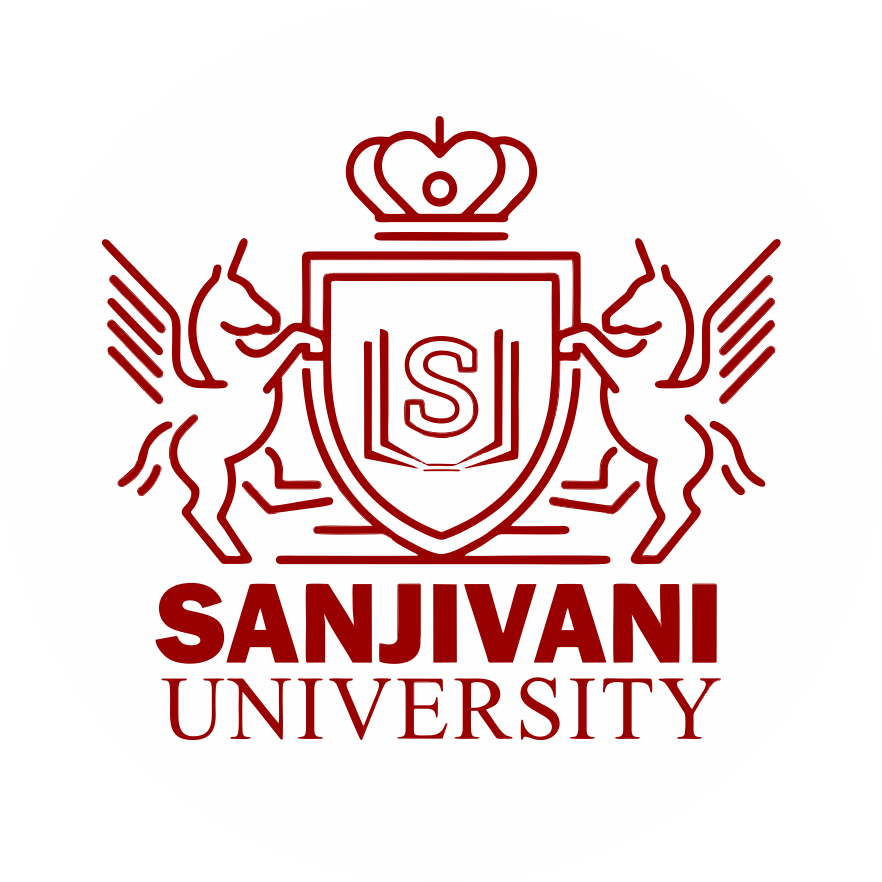
Quick Link
Home About Us Sustainability Academics Admission Events Life at Sanjivani IQAC Contact UsContact Us
Sanjivani University, Kopargaon, Near Shirdi, Ahilyanagar (Ahmednagar), 423601.
The 21st century is known as the technical era and computer science core field which get impacted a lot because of the same. Keeping these versatile needs in mind the Sanjivani University which is one of the leading universities in India started the Computer Science and Engineering Department in 2024. The Department has very well qualified faculty members, fully digitally equipped classrooms & state-of-the art laboratories and is now recognized as one of the prominent and known for academic excellence in the country.
Department has followed all the rules and regulations laid down by NEP-2020 for designing curriculum. Department has given changing flexibility to amend the curriculum from time to time to fulfill the needs of industry. Choice based subject selection makes students free environment to lead as per their interest. Department focus is to provide necessary platform and environment to bring students’ talent ahead. Nurture the students’ talent and convert it to skill is the fundamental duty of the department. Beside high-quality teaching and instruction at UG and PG, the department is actively involved in basic and applied research and consultancy services. The department is providing quality technical and advisory support through consultancy to various agencies to solve the real time challenges.
About Us
The Department of Computer Science and engineering at Sanjivani University is committed to excellence in education and research full stack development with focusing on domains such as Computer Vision, Machine Learning, Digital Twins etc. We aim to give students a strong foundation in these technologies, preparing them to innovate and solve complex problems in various domains.
Our faculty members are renowned experts in Computer Algorithms and Problem Solving, bringing a wealth of knowledge and experience from both academic and industry backgrounds. They are dedicated to providing a comprehensive, hands-on education that equips students with the skills necessary to excel in a rapidly evolving technological landscape.
Programs Offered
Undergraduate Programs
B.Tech CSE curriculum powered by HCLTech
Postgraduate Programs
M.Tech in CSE
Ph.D. in CSE
Features of Department
HCLTech-Powered Syllabus
Our curriculum is powered by HCLTech, ensuring that our syllabus is aligned with industry standards and technological advancements. This collaboration provides our students with access to cutting-edge tools, resources, and real-world scenarios, enhancing their learning experience and preparing them for the demands of the global tech industry.
Research Areas
Our research encompasses a wide range of advanced topics within Full Stack Development, including:
Facilities and Labs
Our department is equipped with modern facilities and labs designed to support both theoretical and practical work:
Advanced Computing Labs with high-performance GPUs
Computer Vision Laboratory
Data Science and Analytics Labs
Robotics and Automation Labs
Industry Collaboration and Placement
We have signed Memorandums of Understanding (MOUs) with prominent industry organizations, including:
Advanced Computing Labs with high-performance GPUs
Hyperspectral imaging
Data Science and Analytics Labs
Robotics and Automation Labs
We promote interdisciplinary research and collaboration, working with industry leaders and research institutions to drive impactful innovations and discoveries.
Faculty
Our faculty members are distinguished professionals with extensive expertise in Computer Algorithms and problem solving. They are committed to mentoring students, guiding research initiatives, and contributing to the academic community through publications, conferences, and collaborative projects.
Student Life
The department fosters an engaging and dynamic student community, offering:
Association of Computer Science and Engineering students’ association
International Experts sessions
Workshops and Seminars
Hackathons and Competitions
Industry Visits and Networking Events
Join us at Sanjivani University and be a part of the future of Computer World!
Vision of Department of CSE
Mission of Department of CSE
PROGRAM SPECIFIC OUTCOMES (PSOs)
POS1: Graduates are able to understand the concepts of theoretical working of computer science and engineering with full stack development and their applications in the field of Software Technology, Application programming, System programming, Data analytics, Machine learning, Networking and other relevant multi-disciplinary areas.
POS2: Graduates are able to analyse, comprehend, design & develop software systems for a variety of engineering applications and thus demonstrating professional ethics & concern for societal well-being.
POS3: Graduates are able to apply computer science and engineering solutions for Big Data, High Performance Computing, Software Defined Network, etc.